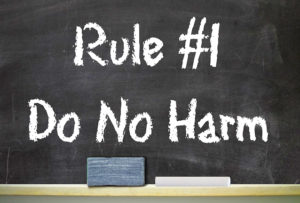By the time couples get to our (family law attorneys) offices, they have typically said and done harmful things to each other, sometimes even in public and in front of the children. When relationships are in the throes of a break-up, the worst thing that can be done is to heighten the animosity between the couple. But, sadly, that is usually what the adversarial (or Court) model does. In the Court model, the game is for
in public and in front of the children. When relationships are in the throes of a break-up, the worst thing that can be done is to heighten the animosity between the couple. But, sadly, that is usually what the adversarial (or Court) model does. In the Court model, the game is for
for someone to “win,” and the only way to do that is to say the worst possible things about your spouse/your children’s other parent. Those wounds and scars are difficult to ever heal, and it is not unusual for us to be dealing with young people who are in our offices for their own divorces, who don’t want a divorce like their parents had because they have suffered their entire lives for the damage that was done in their parents’ divorce.
Honoree Corder is a well-known author who has personally been in those trenches and knows what it’s like to have those wounds and scars. Luckily, she had the wisdom to figure out a way to rise from those ashes like a Phoenix—she even has a book about it with that title, “The Divorced Phoenix: Rising From the Ashes of a Broken Marriage.” In her recent article, “Getting Along with My Ex–Are You?” she highlights other people and couples who have learned to get along with their ex-spouse and demonstrates how their children are the beneficiaries of that goodwill.
In the Collaborative Divorce Process, the couple works with a team—each has their own lawyer, then they have a financial neutral who assists them gathering their financial information and a communications coach who is trained to assist them in developing their parenting plan and in communicating effectively. The Collaborative Divorce team helps couples successfully navigate their way through the tumultuous waters of divorce without doing additional harm to their relationship or their families–we keep them out of court. At the end of many divorces handled in court, the parties will be bitter enemies for life and return to court again and again to continue to fight. At the end of most Collaborative Divorces, clients are able to get along, which is an immeasurable benefit to their children and their children’s children—it is even a benefit to the emotional and physical well–being of the couple. In fact, just a couple of weeks ago, when we finished a Collaborative Divorce, the couple were talking about leaving there to go get breakfast together. Everyone on their Collaborative Team commented to them that not everyone who goes through a divorce is able to do that at the end and how pleased we were for them that they are able to work together. At the end of a Collaborative Divorce, this happens more than you might expect. If you or someone you know is facing divorce, tell them to consider Collaborative Divorce.
Contact A Denton County Collaborative Divorce Attorney
To schedule an initial consultation with an experienced North Texas collaborative divorce lawyer, contact the Law Office of Camille Milner at 940-383-2674.











